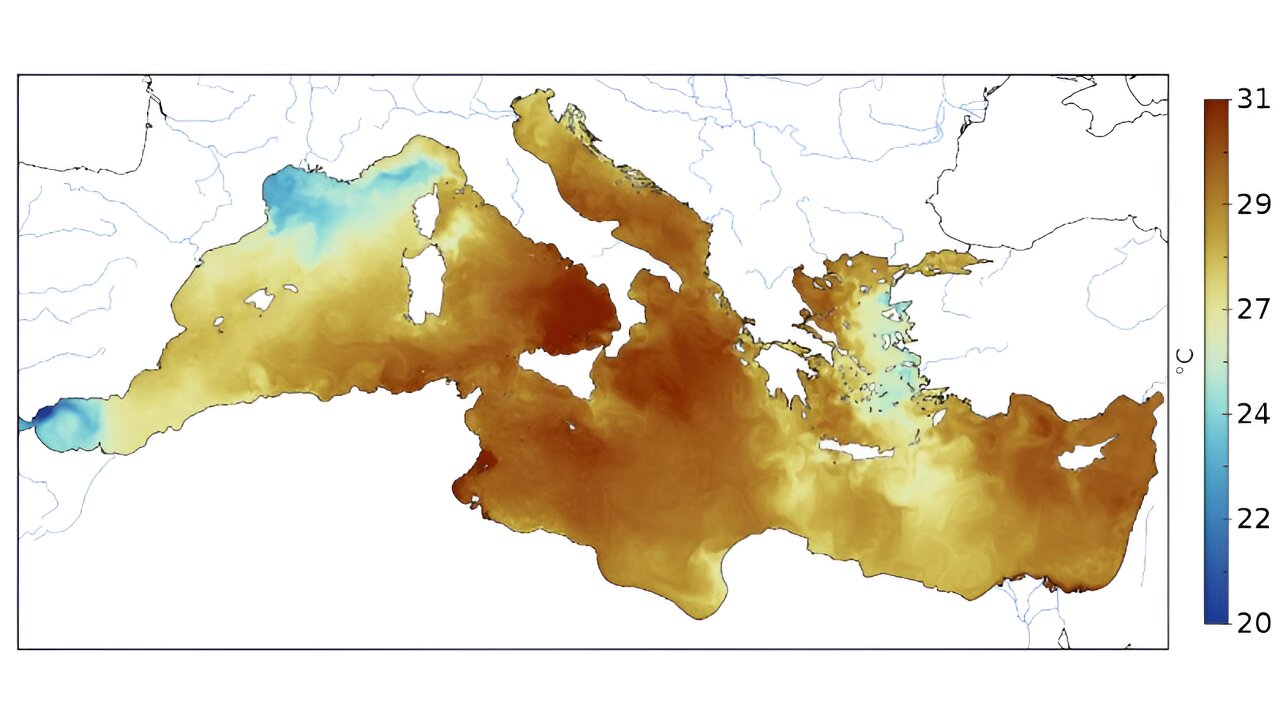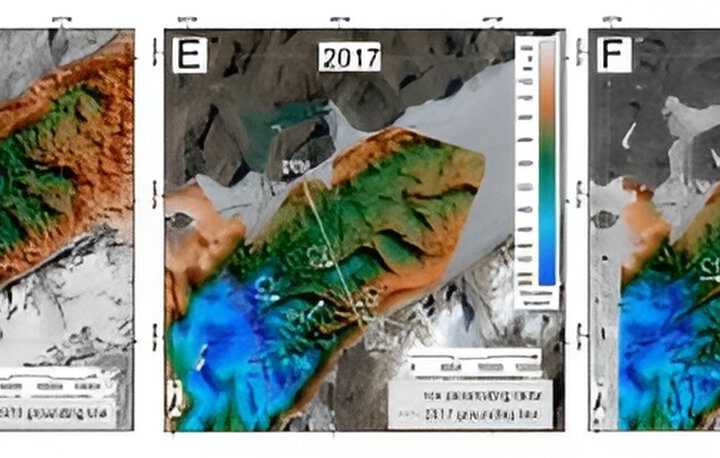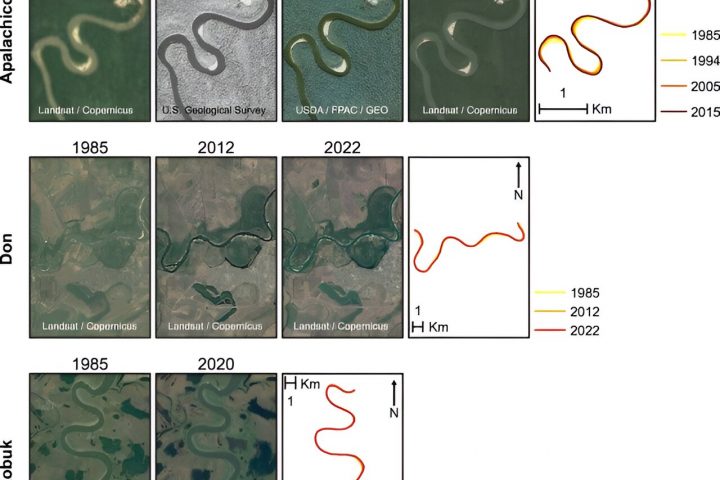The climate crisis is wreaking havoc on marine ecosystems worldwide, and the Mediterranean is no exception. Massive mortality events caused by marine heat waves are occurring throughout the basin. Understanding and defining these events accurately is crucial for predicting future scenarios.
Now, a groundbreaking study by the Institut de Ciències del Mar (ICM-CSIC) and the Institute of Marine Sciences of the National Research Council (CNR-ISMAR) has uncovered how decoupling global warming trends impacts the characteristics of marine heat waves. According to the authors, this leads to an apparent increase in the frequency and intensity of these extreme events.
In their recently published work in the journal Frontiers in Marine Science, the authors analyzed a dataset of Mediterranean Sea surface temperatures collected over the past 41 years (1982–2022) by the Copernicus Marine Monitoring Service (CMEMS).
“Our results reveal that when temperature data is analyzed without correcting for trends, marine heat waves are not accurately detected, and their characteristics, such as frequency, intensity, and duration, are distorted,” explains J. Martínez, a researcher at the ICM-CSIC and the study’s lead author.
Therefore, failing to correct for trend produces an artificial increase in the frequency and intensity of marine heat waves in recent years, leading to an underestimation of heat waves that occurred in the past. The authors attribute this to a warming trend in the region rather than actual changes in heat wave characteristics.
“By removing the trend from the data, we can distinguish between long-term warming and transient, abrupt changes in surface temperature (heat waves), providing a more accurate description of marine heat wave properties,” adds J. Martínez.
Main Heat Waves in the Mediterranean
The study also presents a catalog of the major heat waves that have occurred in the Mediterranean since 1982. In total, 15 severe and five extreme marine heat waves were detected during the analyzed period (1989, 1993, 1999, 2001, and 2007).
These include the 1999 event, which had the largest affected surface area in the entire series, and the 2003 event, which impacted all Mediterranean sub-basins with significantly higher average and maximum intensity values (up to 7 ºC higher than usual) for 94 days. This event coincided with an atmospheric heat wave across Europe.
Lastly, the authors highlight an event that occurred last year, lasting from May to December (131 days), although with lower intensities compared to the 2003 event.
Overall, this work demonstrates the influence of climate change on Mediterranean warming, amplifying the effects of marine heat waves.
“This poses a significant challenge for managing and conserving marine ecosystems in the region. However, it provides valuable information for future studies on the impact of the climate crisis on the ocean during a time of alarming sustained warming,” conclude the authors, who maintain a daily monitoring system of marine heat waves in the Mediterranean accessible at this link.








